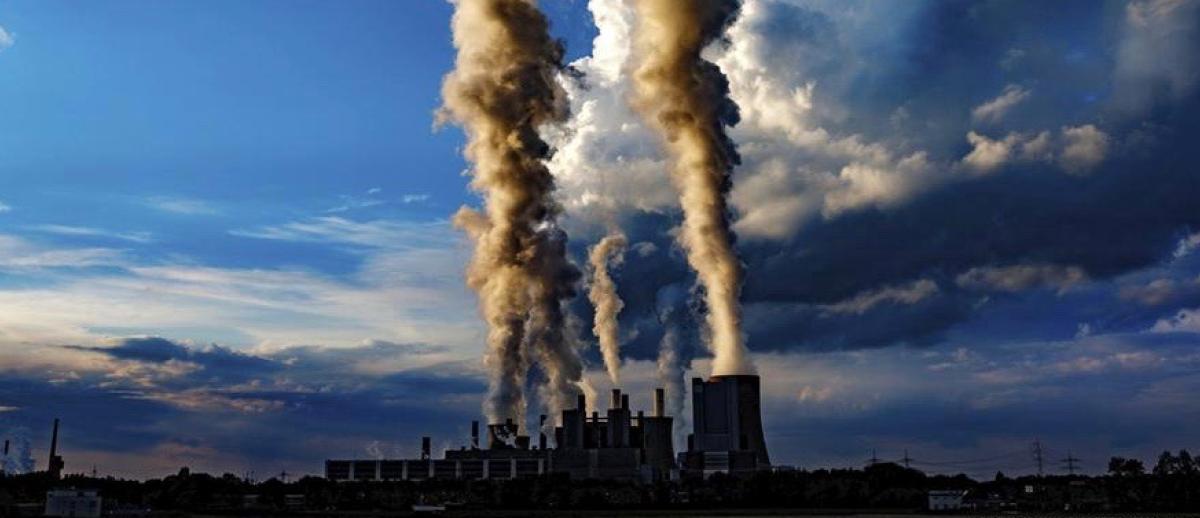It’s the Ecology, Stupid!
archive


Photo credit: picture-alliance/dpa/Geisler-Fotopress
It’s the Ecology, Stupid!
“The picture is pretty bleak, gentlemen. The world’s climates are changing, the mammals are taking over, and we all have a brain about the size of a walnut.”1
Answering Benedikter and Kofler’s call for “Re-Globalization,” I believe that globalization as we know it has to be fundamentally revisioned due to the environmental crisis and neoliberal globalization’s longstanding (thirty years and counting!) blind eye towards it, both theoretically and practically.
Hans Rosling,2 on the contrary, argues—with an overwhelming amount of data—that the world is in a better state than ever: hundreds of millions of people have been freed from absolute poverty, 80% of all children are vaccinated at least once, boys and girls go to school for eight to nine years, the global birth rate is reaching equilibrium (in Iran it is already as low as 1.6 children per woman), endangered species have been rescued, etc.
Could there be greater contrasts? And, if Rosling is right, why then are so many people trapped in nationalistic, racist, and xenophobic dogmas? Are they simply at loggerheads with facts or do they know better? I do not claim the existence of alternative facts, but I do support the view that the perception of ordinary people differs significantly from that of the elites. We must recognize that something essential has changed in the economy and the social condition of the populations in capitalist countries. From the end of the war until the 1980s, wages in most capitalist countries were steadily growing and workers could expect a better life for their children and for themselves. For the broad majority, the future was bright. Nowadays, after the “end of history” and neoliberal excesses, most people feel that things have changed: salaries have been stagnating for more than two decades, jobs have become precarious, pensions are shrinking, even disappearing, and we can no longer expect a better life for our children. School kids remind us every Friday that we have failed, and the financial breakdown in 2008 has taught us that there are two kinds of people: winners (the few) and losers (the many). The special case of Greece, with a defaulted economy and incomes still 30% depressed, was a clear demonstration to Europe (and beyond) that for the great majority the good times are over. It’s a rich man’s world. Migration caused by climate change, environmental degradation, and war have created additional fears for the working poor and those left behind.
Most importantly, we have exceeded the life supporting capacity of our planet by 1.75 times. Even those who do not read scientific papers realize that our standard model of exploiting the Earth and foreign people—not to mention our own populations—has reached a terminal point.3 One may say it’s a feeling rather than concrete knowledge, but it is an awareness nonetheless. In a finite world, the vision of unlimited growth is absurd. The struggle for economic growth is no longer a promise for the great majority, but an indication of the absence of a clear vision. Insecurity has brought many of us to the point that we are abandoning the foundations of our societies: “liberty, equality, fraternity” is now replaced by “us against them.”
Racist leaders in Europe, the United States, and elsewhere have found the culprit, i.e., “the others” (foreigners, migrants…). Consequently, they have started to prepare the white race for an Armageddon with walls and—where there are no walls, such as in Europe—with concentration camps in Libya and the intentional slaughter of refugees in the Mediterranean Sea (“mare nostrum” by the way!). So one may argue that racist leaders have drawn the right conclusion: if the planet is too small for all, if we want to continue with the standard model of exploitation, we must keep out the have-nots. Of course, this does not imply that we stop the transnational traffic of goods, garbage, and money, but simply the traffic of people. This madness is supported by “true” Hungarians, Fins, Poles, etc. who envision a return to a fictional “pure” nation. The most striking example of political and social absurdity is Brexit, with its promise of “taking back control of our nation” by replacing the European Union with the Commonwealth. Yet football fans know better: there is no British nation, just tribes such as Wales, England, and Scotland.4
we have exceeded the life supporting capacity of our planet by 1.75 times. Even those who do not read scientific papers realize that our standard model of exploiting the Earth and foreign people—not to mention our own populations—has reached a terminal point.
How did we get here? The (former) grand social democratic parties have succumbed to (neo-)liberalism and embraced the creed of a free market economy. Over the course of the last generation, the gap between the rich and the poor has widened, both within and between countries, and former social democrats have given the impression that “there was no alternative.” As a consequence, they have lost the support of voters. Actually, they are struggling to not become completely obsolete and irrelevant. Strangely, some socialist party leaders still seem reluctant to comprehend the very reason for their defeat: the disavowal of those people who desperately need not only economic support, but also a future for themselves, for their children and grandchildren. Unfortunately, conservative party leaders are also unwilling to abandon the path to destruction as they continue to pledge business as usual.
Is there a way out, a better solution or simply an escape route? Paul Mason5 envisions the future of our economic system by recalling an idea of Marx, who was fascinated by the productive potential of capitalism, which will lead us eventually into the realm of freedom or, as Mason calls it, “towards the free machine”: collaborative work, disappearing market forces, basic income, and a “network unleashed.” In times of transition several authors are citing Antonio Gramsci’s “pessimism of the intellect, optimism of the will.”6 I agree with this dictum coined by a fighter for humanity, justice, and equality one hundred years ago, but prefer to cite a poem written in 1803: “But where there is danger, the potential for rescue grows too.”7 To put it bluntly, we have to save the world, and in the face of our children there is no excuse for failing to put our full energy into it. We need a new enlightenment, an ecological social economy, courage, and endurance. And we need a ‘new narrative of Modernity’,8 at least for the intellectual minority. For the majority, clearly stated facts and tangible results would suffice.
1. The quote is taken from a Gary Larson cartoon featuring a lecturer speaking at a dinosaur assembly 66 million years ago.
2. Hans Rosling. Factfuless. Ten Reasons Why We’re Wrong About the World and Why Things Are Better Than You Think. (New York: Flatiron, 2018.) In my opinion, Hans Rosling is correct with the facts, but might have been too optimistic in the selection of some examples.
3. But ”you are still fucking peasants as far as I can see.” John Lennon, ‘Working Class Hero.’
4. Actually, tribes are much smaller, consisting, for instance, of football fanatics (“tifosi” in Italian, i.e., infected by typhus).
5. Paul Mason. Postcapitalism: A Guide to Our Future. (Penguin Random House, 2015).
6. “Pessimismo dell'intelligenza, ottimismo della volontà.” In L’Ordine Nuovo, 1920, Antonio Gramsci was pleading for an immeasurable effort from communists within the socialist party to bring Italy’s underdeveloped economy forward.
7. Friedrich Hölderlin: "Wo aber Gefahr ist, wächst das Rettende auch." Patmos 1803.
8. Hans Joachim Schellnhuber (Potsdam Institute for Climate Impact Research), argues for Ein neues Narrativ der Moderne in view of the threats of climate change.



